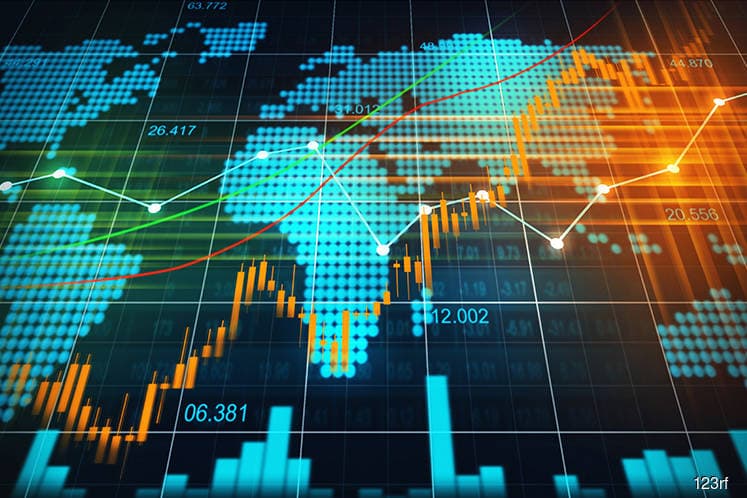
This article first appeared in Personal Wealth, The Edge Malaysia Weekly on January 13, 2020 - January 19, 2020
Trade disputes and geopolitics hampered global economic growth last year. But with easing tensions and fiscal policies, financial markets are on the path to recovery, says Steven Moeller, managing director and head of multi-asset platform strategy in Asia-Pacific at BlackRock.
The US-China trade war and Brexit marked a sharp reversal from decades of growing openness and injected uncertainty into business planning, leading to a weakening in economic activity, he says. “Meanwhile, US trade policy has become increasingly unpredictable and has led to an [increase] in volatility globally. Recent geopolitical concerns underscore our views from last year that geopolitical dynamics are increasingly important for global markets.”
A temporary de-escalation in the US-China trade tensions has sparked a relief rally in risk assets, Moeller points out. “However, elevated macro uncertainty is still holding back economic activity and creating further risks to the near-term growth outlook.
“Nevertheless, we expect a pickup in global growth in the next 6 to 12 months as policy stimulus gradually filters through to the real economy. This suggests that moderate risk-taking will likely be rewarded, even as we call for a greater focus on diversification and portfolio resilience.”
Optimism returned somewhat to the markets at the end of last year after the world’s largest economies indicated that they were coming close to finalising an initial trade deal and the prospect of looser monetary policies in 2020 pushed stocks higher, with US equities soaring to record levels.
Central banks have eased their stance with the aim of offsetting trade shocks and sustaining the economic expansion in the face of a manufacturing recession, says Moeller.
The US Institute of Supply Management’s Purchasing Managers Index released in October last year indicated that the weakness in the factory sector, bruised by the global trade slowdown and US President Donald Trump’s tariff tiff, generated recession concerns and triggered a sharp selloff in the country’s stocks.
“As we go forward, we believe that the US Federal Reserve has finished its late-cycle insurance rate cuts and is on hold for several months barring a sharp growth downturn or a risk asset selloff. China has stuck to a stable monetary policy stance, even in the face of an economic slowdown,” says Moeller.
“Why does this matter? Central banks face an increasingly challenged policy outlook. The monetary policy ammunition is running low as interest rates are near historic lows. Difficult policy choices are resulting in more deeply divided decision-making bodies on both sides of the Atlantic.
“The globally synchronised action of central banks in policy decisions had led to an easing in financial conditions and an addition of more liquidity into the system, which could allow the current cycle to continue. We do not believe, however, that monetary policy alone is a cure for the fallout from global trade tensions. Supply chain disruptions could deliver a blow to productive capacity that fosters mildly higher inflation even as growth slows. This complicates the case for further policy easing.”
He adds that the firm’s base case points to a slowdown in global growth that is cushioned by additional policy easing this year. However, despite the slowdown, economic growth is expected to be positive.
“Slowing but positive growth, coupled with reasonably strong fundamentals and increasingly supportive monetary policy, is positive for risk taking, particularly in equities. Within a total portfolio context, we maintain a preference for stocks relative to bonds. But we also recognise the benefit of allocating a portion of assets to diversify alternative exposures,” says Moeller.
Within equities, BlackRock favours quality US stocks compared with those in other regions, he says. “We believe the growth backdrop remains stronger than what is broadly recognised and the strength of the US consumer sector remains a source of support for the economy.
“We are more cautious on equities in Asian emerging markets given the impact of ongoing geopolitical risks and trade tensions. We see China’s economy slowing further, which will likely result in additional stimulus, while not expecting a material pickup in growth. We are neutral on the eurozone, given the supportive central bank policy and ongoing political uncertainty.”
When it comes to fixed-income instruments, BlackRock is overweight on long-term US bonds as yields in the lower bounds make government bonds a less effective portfolio ballast. US Treasury yields reached significant lows in August last year, with the 30-year Treasury bond hitting an all-time low of 2.09%.
“While yields in the US have declined in recent months, US duration [long-term US bonds] continues to provide attractive diversification and hedging properties within a multi-asset context. We also believe the carry trade [borrowing at a low interest rate and investing in an asset that provides a higher rate of return] is well supported in the current environment,” says Moeller.
“The global scarcity of income has led to a consistent bid for higher-yielding assets and as such, we remain confident in exposures to high-yield and investment-grade credit. Overall, our preference remains to diversify across a variety of income-earning sectors of the bond market.”
This is where investors can benefit from a diversified multi-asset portfolio. For investors who have traditionally owned more fixed-income assets, a diversified multi-asset portfolio provides greater upside potential while helping manage interest rate risk, says Moeller. “Such a strategy offers greater equity market upside with less duration compared with fixed-income sectors.”
Similarly, for investors who may have a larger allocation to stocks, a diversified multi-asset strategy offers greater diversification and downside protection without sacrificing the potential of attractive returns, he says. “In either case, investors can benefit from attractive returns with moderate risk, a value proposition that we believe is relevant in today’s markets.”
Save by subscribing to us for your print and/or digital copy.
P/S: The Edge is also available on Apple's AppStore and Androids' Google Play.